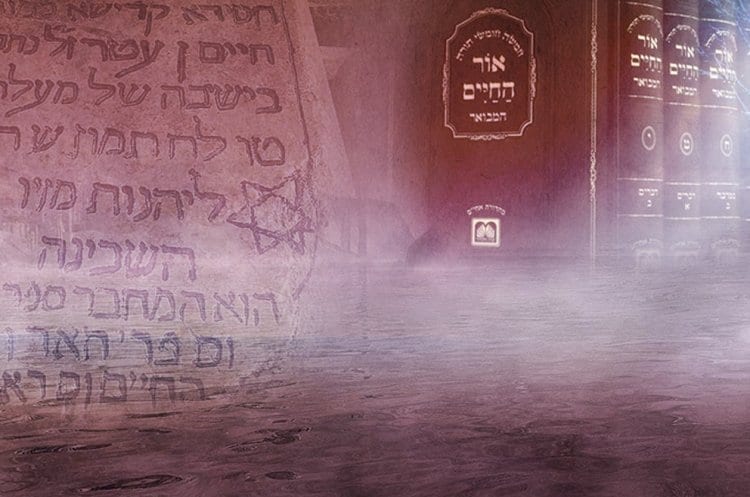Not many are familiar with Rabbi Shlomo Dayan, who passed away on July 6, 1985 (9 Tammuz 5745).
Rabbi Mordechai Sharabi testified about him that he was one of the “thirty-six righteous in our generation.” Most of the time Rabbi Dayan maintained the front of a humble, private person. He wore simple clothes which covered up his exalted personality. He was a noble soul put in a holy body that was well camouflaged by his plain dress. Only a few knew a little of his greatness, because he took precautions to conceal himself from people’s eyes.
Rabbi Yosef Shlomo Dayan was born in Aleppo, Syria to the venerable Dayan family, whose lineage goes back to King David, generation after generation. One day he packed his belongings and moved to Jerusalem. The one goal in front of him was to hasten the coming of the Messiah and the time of redemption by rectifying Jewish sins, commandments that were not observed and prohibitions that were violated. He knew that to correct the sparks caused by each sin, one must perform awesome kavanot (permutations of the Divine Name that overcome the separation forces in heaven) and yichudim (meditation that causes divine unification in the supernal spheres).
Rabbi Dayan believed that for a person to genuinely strive to rectify his mind and cleanse his soul from sins, he must be close to righteous and honest people, cleave to them and thereby elevate himself. However, because in our generation it is impossible to know who are the true tzadikim, one has a duty to go to the graves of famous tzadikim and pray there and plead that they arouse heavenly mercy to rectify one’s mind, spirit and soul.
He always used to say, “An hour of prayer and study at the graves of the righteous is worth a hundred hours of study,” and it is particularly useful when access to the grave of a tzadik is difficult and grueling. Every step in such a place commutes the difficult judgments in heaven, because “according to the pain is the gain.”
Dayan believed that even if a person was seriously blemished due to his sins, and he feels desperate and hopeless – nevertheless, just bringing him in contact with the grave of a tzadik, especially accompanied by prayer, Torah study, and prostrating himself at the tzadik’s shrine, will help him clean himself and purify himself from his sins. It will help him elevate himself from the lowest abyss he finds himself in. He especially used to go to the grave of the prophet Samuel, and he declared that anyone who would do a tikkun at Samuel's tomb is assured that heaven will help him. If he doesn’t get helped the first time, he will certainly get heavenly help after a few times.
Rabbi Dayan died of a heart attack on Sabbath eve and was buried in the Har Hamenuchot cemetery in Jerusalem, close to the grave of Rabbi Kadoori.
Rabbi Meir Malka, founder of the Foundation to Memorialize Rabbi Kadoori and the author of “Yeshuot Isaac”, had the great merit to set up a shrine for Rabbi Yosef Shlomo Dayan in 2011, 26 years after his passing, during which time visitors didn’t have a proper place to pray and prostrate themselves at his holy grave. Now, there is a structure above the shrine for the convenience of worshipers, and his tomb is also broadcast live on the Internet.
The public is invited to visit his holy shrine and pray there on his death anniversary on 9 Tammuz. (The anniversary will fall out on these days in the next 3 years: June 26, 2015, July 15, 2016, and July 3, 2017.) A group organized by Rabbi Malka recites a tikkun on this occasion composed by Rabbi Dayan himself, which he promised will bring all kinds of salvations. For details: 1-800-20-17-17.





